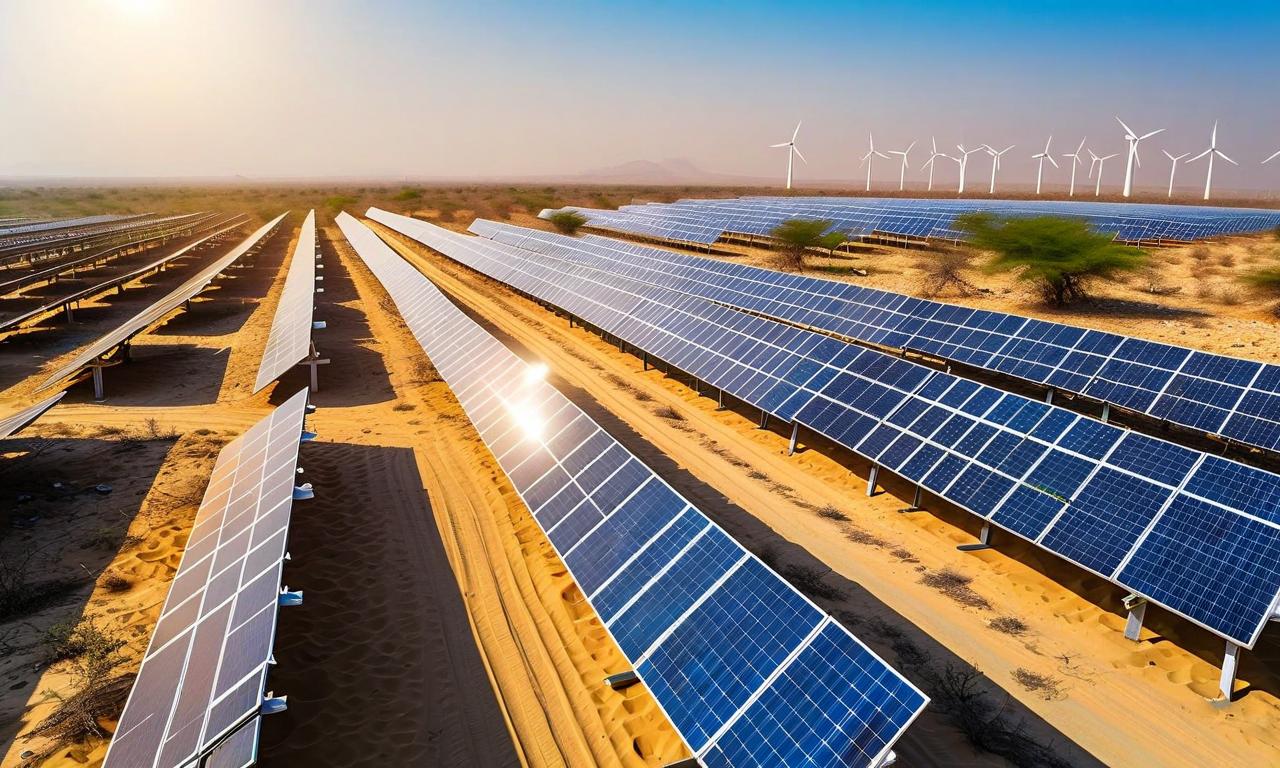India Challenges US Anti-Dumping Probe on $1 Billion Solar Module Exports
The Indian government strongly opposes the US anti-dumping investigation into Indian solar module exports, claiming it lacks merit. The probe could lead to an additional 25% tariff on top of existing 25% duties, potentially affecting $1 billion worth of exports. Indian manufacturers remain confident in disproving dumping allegations and are diversifying to African markets while increasing domestic supplies. Some Indian companies are setting up production facilities in the US in response to market changes. The investigation was initiated by US solar manufacturers seeking to reduce dependence on Chinese imports.

*this image is generated using AI for illustrative purposes only.
The Indian government has strongly contested the United States' anti-dumping investigation into Indian solar module exports, asserting that the probe lacks merit. This development comes as the US considers imposing additional tariffs on solar modules from India, potentially affecting a significant portion of the country's export market in this sector.
Dispute Over Anti-Dumping Investigation
Government sources in India claim that Washington has failed to distinguish between legitimate Indian manufacturers and trans-shipment operations in its investigation. The probe is examining the possibility of imposing an additional 25% levy on top of an existing 25% tariff. This could have far-reaching implications for Indian solar module exports to the US, which are valued at approximately $1.00 billion and represent nearly half of India's total export value for the product.
Impact on Indian Manufacturers
Despite the ongoing investigation, Indian solar module manufacturers remain confident in their ability to prove they have not engaged in dumping practices. They believe that their long-term export plans will remain unaffected by the probe. This optimism is partly due to India's efforts to diversify its solar module exports to African markets and increase domestic supplies.
US Demand and Indian Response
The demand for Indian solar modules in the US primarily comes from private companies establishing industries and data centers. This trend is driven by American firms seeking to reduce their dependence on Chinese imports. In response to the changing market dynamics and potential trade barriers, several Indian manufacturers are taking proactive steps by setting up production facilities in the United States.
Trade Petition and Previous Actions
The anti-dumping petitions were filed with US trade authorities by the Alliance for American Solar Manufacturing and Trade, along with companies such as First Solar, Mission Solar Energy, and Qcells. The US has previously imposed similar duties on solar exports from Cambodia, Malaysia, Thailand, and Vietnam, indicating a broader trend in its trade policy regarding solar technology imports.
India's Strategy Moving Forward
In light of these challenges, India is adopting a two-pronged approach:
- Market Diversification: The country is actively exploring and expanding into African markets for its solar module exports.
- Domestic Focus: There's an increased emphasis on boosting domestic supplies to reduce dependence on exports.
These strategies aim to mitigate the potential impact of the US investigation and ensure the continued growth of India's solar module industry.
The outcome of this anti-dumping probe could have significant implications for the global solar energy market, particularly affecting trade relations between India and the United States in the renewable energy sector. As the investigation unfolds, both countries will likely engage in further discussions to address concerns and find a mutually beneficial resolution.
























